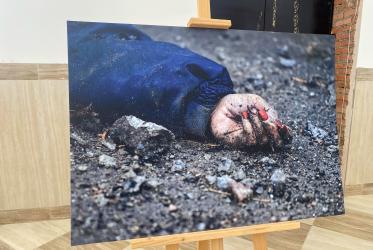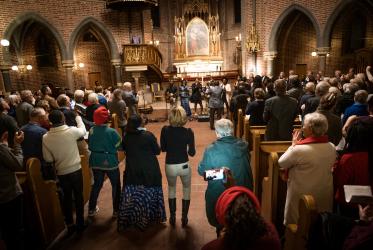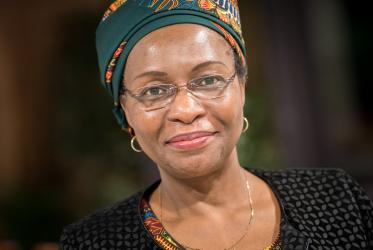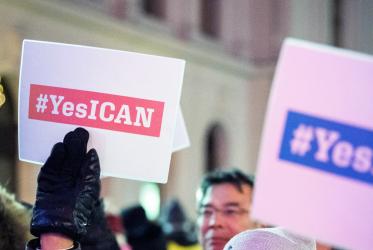Displaying 1 - 18 of 18
14 December 2023
Oslo prays for peace, in week of Peace Prize ceremony
10 December 2018
WCC Executive Committee envisions future for one ecumenical movement
08 November 2018
WCC congratulates 2018 Nobel Peace Prize laureates
05 October 2018
Rebuilding a smashed church in Albania
23 December 2015
Nobel Laureate Leymah Gbowee speaks at WCC Peace Plenary
07 November 2013










